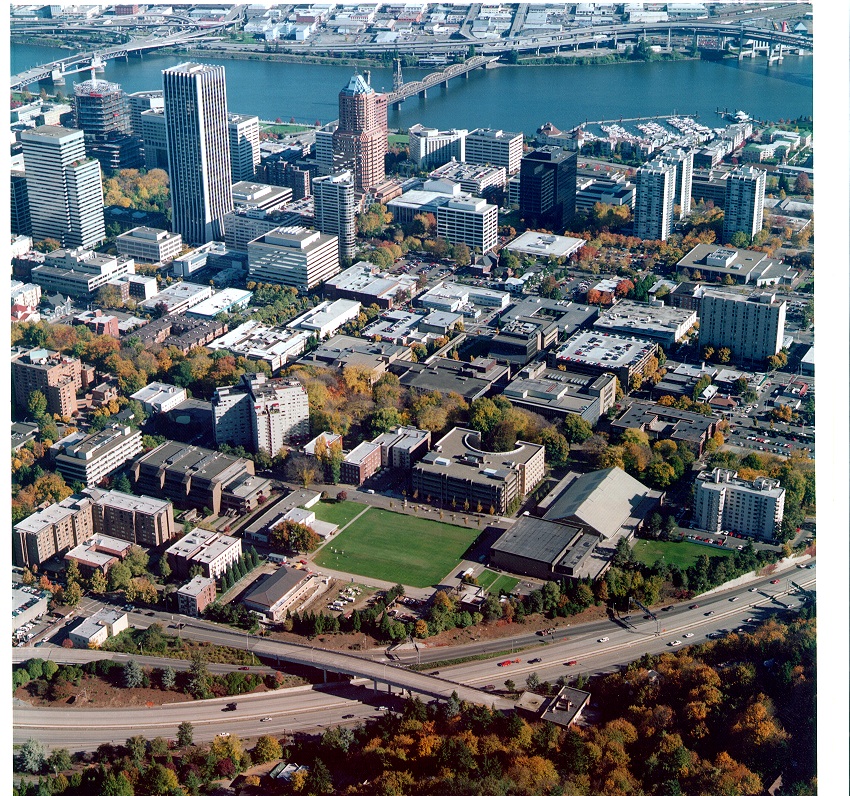The White Cloud Center in Portland was created in 1975 by the University of Oregon Health Sciences Center (OHSC; now Oregon Health & Sciences University) to engage in mental health research for American Indians and Alaska Natives. The center’s primary objective was to inform culturally appropriate mental health prevention and treatment in Native communities.
Founded in association with the School of Medicine’s Department of Psychiatry, the center was supported by a grant from the National Institute of Mental Health (NIMH) through the National Tribal Chairman’s Association and the National Tribal Chairman’s Fund. Oregon was chosen as the center’s location for several reasons. James Shore, chair of the Department of Psychiatry at OHSC, had a relationship with the National Tribal Chairman’s Association and had worked as an administrator and scientist with the Indian Health Service (IHS). Shore was one of the earliest doctors in the Indian Health Service to develop mental health programs for American Indians. OHSC’s focus on cultural psychiatry, through the work of Shore and other faculty members (including Joseph Bloom, who would serve as the dean of the School of Medicine), made Oregon the preferred location for the new center.
The first director of the White Cloud Center was Herbert Fowler, who was known for his work with mental health programs for American Indians. Fowler received the Lenin Peace Prize in Science in 1976, the second American and second recipient with Oregon connections to receive the award (Linus Pauling was honored in 1971). He died on January 2, 1977.
Robert Ryan, White Cloud’s director of research, was named the new director. Following conflicts between the center and the university in the early 1980s, he attempted to relocate the center to the University of South Dakota, but he was unsuccessful in his efforts to obtain long-term, renewed funding. With the center in South Dakota in limbo, NIMH solicited a new round of applications to re-establish the center. OHSC applied to re-establish a research center for American Indian mental health in Oregon, with Spero Manson as the proposed director. Manson was a professor in the OHSC Department of Psychiatry and the director of the Institute on Aging at Portland State University.
Just as NIMH announced the success of the OHSC application, James Shore accepted an offer to chair the Department of Psychiatry at the University of Colorado in Denver. Shore recruited Manson to Colorado in 1986, who then established the Centers for American Indian and Alaska Native Health (CAIANH). The center continues to operate today.
The Department of Psychiatry at OHSC continued its interest in cultural psychiatry but lacked a center dedicated to American Indian and Alaska Native mental health until the appointments of R. Dale Walker and Patricia Silk Walker in 1996. They were instrumental in the opening of One Sky Center in 2001. Walker is the current director. While White Cloud was a university-based center focused on research, One Sky was established as a community-based, tribal participatory center. One Sky provides clinical services, technical assistance, and training to Native populations, operating from the space in Gaines Hall that the White Cloud Center once occupied.
The faculty and staff who once worked for the White Cloud Center, including James Shore, Joseph Bloom, and Spero Manson, carried on its legacy. Many went on to greatly influence the field of psychiatry and the mental health treatment of American Indians and Alaska Natives.
-
![]()
"UO opens first Indian mental health center," Portland Oregonian, Nov. 6, 1975.
Portland Oregonian
-
![]()
View of southwest hills and OHSU, 1949.
Oregon Historical Society Research Library, Monner, Org. Lot 1284_1522
-
![]()
"UO opens first Indian mental health center," Portland Oregonian, Nov. 6, 1975.
Portland Oregonian
-
![]()
Herbert Fowler, MD.
Courtesy Oregon Health & Science University Historical Collections & Archives
Related Entries
-
![Portland State University]()
Portland State University
Located in downtown Portland, Portland State University is Oregon’s urb…
-
![Urban Indians in Oregon]()
Urban Indians in Oregon
The Portland Metro area rests on traditional village sites of Native pe…
Map This on the Oregon History WayFinder
The Oregon History Wayfinder is an interactive map that identifies significant places, people, and events in Oregon history.
Further Reading
Olmos, Robert. “UO Opens First Indian Mental Health Center.” Oregonian, Nov. 6, 1975.









